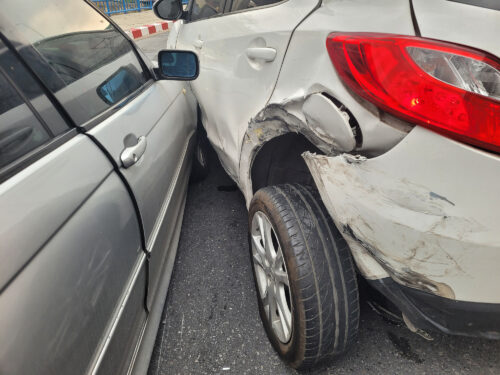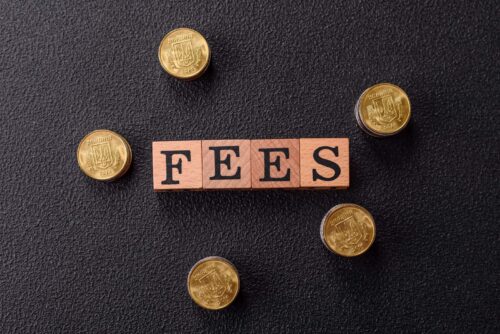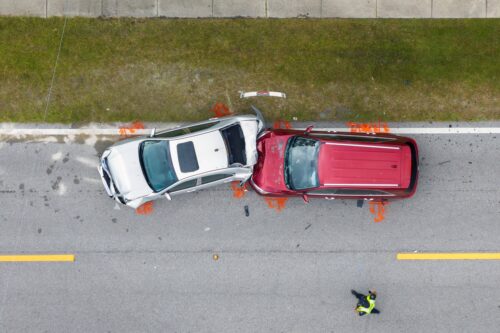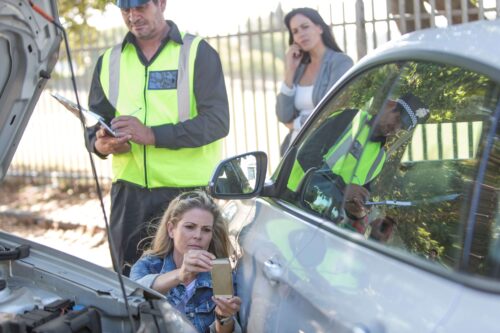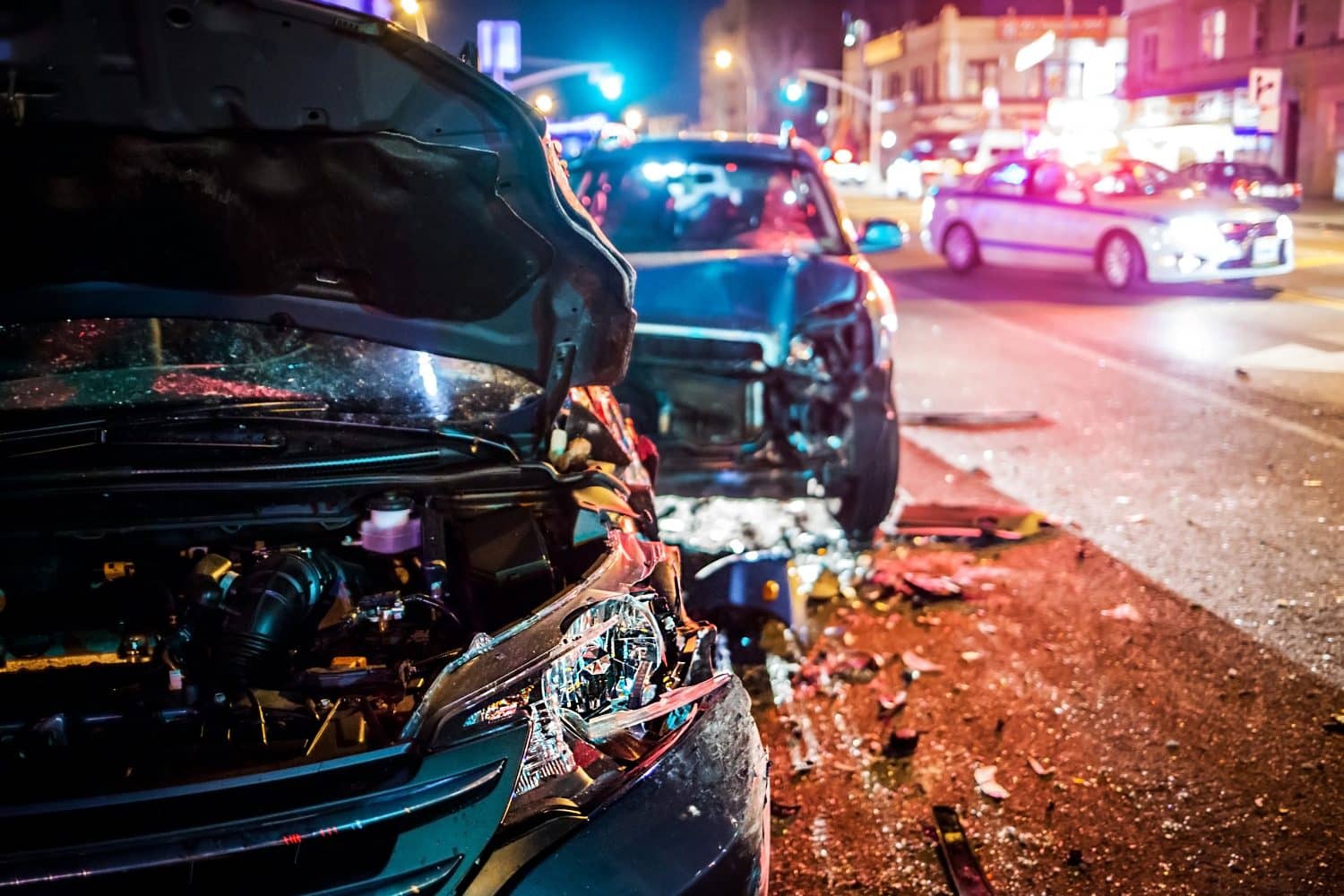
If you’re involved in a car accident with an uninsured driver, you may still be able to recover damages through your own uninsured motorist (UM) coverage. In Massachusetts, all drivers are required to have UM coverage as part of their car insurance policy. The first steps after an accident with an uninsured driver include contacting your insurance company and filing a UM claim to cover medical expenses, lost wages, and other damages.
Our Boston, Sharon, and Cambridge car accident lawyers can help you understand coverage and legal options for a UM claim.
Key Takeaways
- The 1st steps after any accident are to call 911 and get medical treatment.
- Contacting a lawyer is another important step to protect your rights and potential compensation.
- There are penalties for driving without insurance, including license suspension, fines, and potential jail time.
- Massachusetts is a no-fault state for car insurance.
- There is a 3-year statute of limitations on car accident lawsuits.
Table of Contents
Steps To Take After Being Hit by a Driver Without Insurance
If you’ve been in an accident with an uninsured driver, taking the right steps immediately can help protect your rights and benefit you when seeking fair compensation.
A police report serves as official documentation of the incident, which is key when filing an uninsured motorist claim with your insurance company. If the uninsured driver was breaking any laws, such as driving with a suspended license or being under the influence, the officer may issue citations or make an arrest. This can further support your case by demonstrating negligence.
Avoid admitting fault or apologizing at the scene of the accident.
Even if you feel fine immediately after the crash, injuries from car accidents can sometimes appear hours or even days later. Seeking medical attention right away helps document your injuries. Your uninsured motorist coverage may pay for your medical bills, but your insurer will likely require medical records as evidence. If you need ongoing treatment or long-term care, your settlement amount should reflect those future expenses.
Since the at-fault driver has no insurance to cover your losses, collecting strong evidence at the scene is even more important for your uninsured motorist claim. If you’re able to do so safely, try to gather the following:
- Photos & Videos: Take pictures of vehicle damage, skid marks, debris, traffic signs, and any visible injuries.
- Witness Statements: If there were any bystanders who saw the accident, ask for their contact information and statements. Witnesses can help prove the uninsured driver caused the crash.
- Driver’s Information: Even though they don’t have insurance, get the driver’s name, license plate number, and vehicle details. If they refuse to provide information, the police report will be especially important.
- Traffic & Security Cameras: If the accident occurred near a business or at an intersection, ask if there are security cameras that may have captured footage of the crash.
When speaking to your insurer:
- Stick to the facts and avoid speculating about fault.
- Do not agree to a recorded statement without legal advice.
- Keep records of all communication with your insurance company.
- Ask your adjuster about policy limits to understand how much coverage you have.
Your insurer may try to reduce your payout or delay your claim, which is why having an attorney involved early on can help maximize your compensation.
Filing a claim under uninsured motorist coverage can sometimes be just as challenging as dealing with another driver’s insurance. Your own insurance company may try to minimize what they owe you, offer a low settlement, or deny parts of your claim.
A lawyer can help by:
- Reviewing your policy to ensure you get the full amount of UM coverage you may be entitled to.
- Negotiating with your insurer if they undervalue or deny your claim.
- Exploring additional legal options, such as suing the uninsured driver or determining whether a third party (e.g., a vehicle manufacturer or government agency responsible for road maintenance) shares liability.
- Filing a personal injury lawsuit if necessary to recover compensation beyond insurance limits.
If you were injured in an accident caused by an uninsured driver, working with an attorney can make the difference in getting fair compensation for your losses.
What Are the Penalties for Driving Without Insurance?
In Massachusetts, car insurance is required by law, and driving without it can lead to severe consequences. The state enforces strict penalties to ensure that all motorists have at least the minimum required coverage to protect themselves and others on the road.
Penalties for Driving Without Insurance in Massachusetts:
- Fines between $500 and $5,000
- License and registration suspension for up to 1 year
- Reinstatement fees ranging from $100 to $1,200
- Potential jail time of up to 1 year
- Requirement to obtain an SR-22 certificate, leading to higher insurance costs
- Possible criminal charges for repeat offenses
Since uninsured drivers pose a risk to everyone on the road, Massachusetts enforces these penalties strictly. If you are involved in an accident with an uninsured driver, filing a claim under your UM coverage may be the best way to recover damages.
Is UM Coverage Required by Law?
Yes, Massachusetts requires all motorists to carry uninsured motorist coverage for bodily injury or death. This coverage ensures that if you are hit by an uninsured driver, your insurance policy will step in to cover medical bills, lost wages, and other expenses related to the accident. UM coverage can also provide protection in the event of a hit-and-run, helping you recover compensation even if the at-fault driver cannot be identified.
Is Massachusetts a No-Fault State?
Massachusetts follows a no-fault insurance system, meaning drivers must first file claims with their own Personal Injury Protection (PIP) coverage, regardless of who caused the accident. However, if injuries are severe and exceed PIP limits, you may need to file a UM claim or take legal action.
What If My UM Insurance Doesn’t Cover My Expenses?
If your UM coverage is not enough to cover your medical bills, lost wages, or other damages, you may have additional options:
- Health insurance may help cover medical costs.
- Underinsured motorist coverage, if included in your policy, may provide additional compensation.
- A personal injury lawsuit may be an option if another party, such as a vehicle manufacturer or government entity, contributed to the accident.
Can I Sue an Uninsured Driver?
Yes, you can file a lawsuit against an uninsured driver, but collecting compensation may be difficult if they do not have the financial resources to pay for damages. Since drivers who lack insurance often do so because they cannot afford it, they may not have the funds to pay out a settlement even if you win your case. A lawyer can help determine whether a lawsuit is a viable option and explore alternative sources of compensation.
How Long Do I Have To File a Lawsuit?
In Massachusetts, the statute of limitations for car accident claims is 3 years from the date of the accident. Failing to file within this timeframe could result in losing your right to seek compensation.
Insurance claims should be filed as soon as possible to avoid delays in receiving coverage. If you’re unsure about deadlines or your legal options, consulting an attorney can help ensure you take the necessary steps in time.
We offer free consultations and only charge fees if we win compensation for you. Reach out today to learn more!



